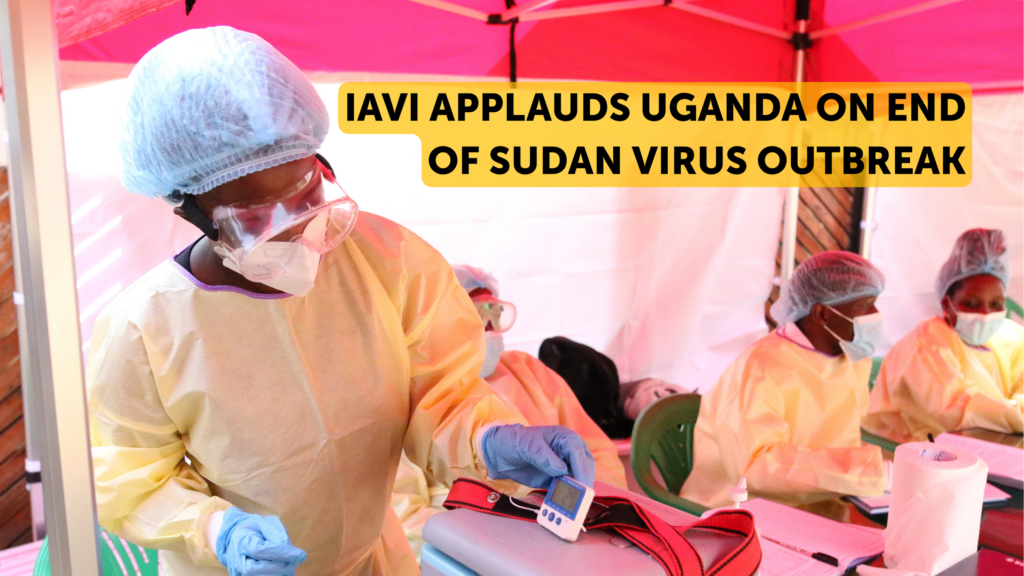April 29, 2025
IAVI applauds Ugandan health authorities on the end of the country’s Sudan virus outbreak
Uganda’s comprehensive public health response included a ring vaccination trial of IAVI’s investigational Sudan virus vaccine candidate.

On April 26, Uganda’s Ministry of Health (MOH) officially declared the end of an Ebola disease outbreak caused by the Sudan virus (SUDV). MOH officials have been working tirelessly and collaboratively with global partners since declaring the outbreak on Jan. 30 following a confirmed infection in a health worker who later died in Kampala.
Notably, the World Health Organization (WHO) initiated an efficacy ring vaccination trial (TOKEMEZA SVD) at Makerere University Lung Institute in Kampala using with IAVI’s SUDV vaccine candidate* just four days after the outbreak was declared. WHO prioritized evaluation of IAVI’s candidate vaccine, which was already prepositioned in Uganda, as part of a global collaborative effort supporting the country’s Ebola outbreak response.
“IAVI applauds the Ugandan government, WHO, communities, health workers, and scientists involved in this response on their exceptionally swift and coordinated efforts to bring this outbreak under control,” said Mark Feinberg, M.D., Ph.D., IAVI President and CEO. “The response highlights the importance of having the right interventions, partnerships, and protocols prepositioned in-country and further underscores the essential role vaccines play in controlling emerging infectious disease outbreaks. IAVI is gratified to have played a role in bringing an end to Uganda’s Ebola outbreak.”
Ring vaccination is a targeted vaccination strategy that aims to identify contacts and contacts of contacts of an index case. This group of individuals forms a “ring” of the index case’s social contact network; this ring of people is subsequently invited to consent for vaccination. Ring vaccination has proven useful during past Ebola outbreaks. At least 17 rings were formed and randomized for vaccination as part of TOKEMEZA SVD. Tokemeza is Swahili for “to eradicate” or “to eliminate.”
This marks the end of Uganda’s sixth confirmed outbreak of Ebola disease caused by SUDV. The WHO reports 14 total cases and four deaths in this outbreak. The last person with confirmed disease tested negative on March 14.
Other aspects of the response included coordination; surveillance and contact tracing; case management; laboratory capacity strengthening; infection control and prevention; risk communication and community engagement; and research and development. Both vaccines and therapeutics have been studied, and data is forthcoming.
Funding support for this outbreak response was provided by the Coalition for Epidemic Preparedness Innovations, European Union Health Emergency Preparedness and Response, Canada’s International Development Research Centre, the Dutch Ministry of Foreign Affairs, and the Japanese Ministry of Finance, with further support from the Africa Centres for Disease Control and Prevention.
Read our fast facts about the outbreak and WHO’s statement for more information.
*In 2022, Merck, known as MSD outside the United States and Canada, produced and donated to IAVI vials of rVSV∆G-SEBOV-GP candidate vaccine from existing investigational drug substance to supplement IAVI’s ongoing SUDV vaccine development program. IAVI now acts as developer and regulatory sponsor and is responsible for all aspects of future development of rVSV∆G-SEBOV-GP.